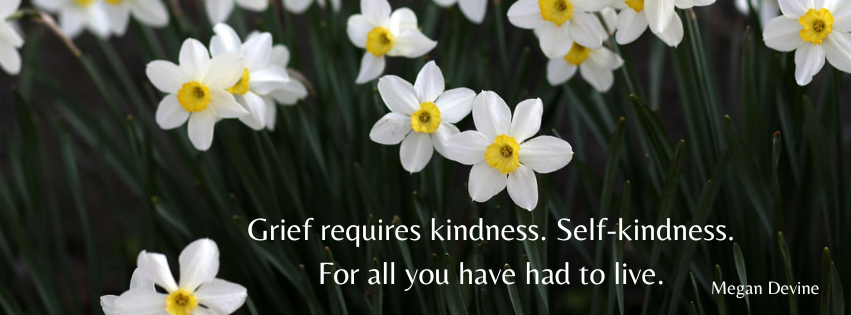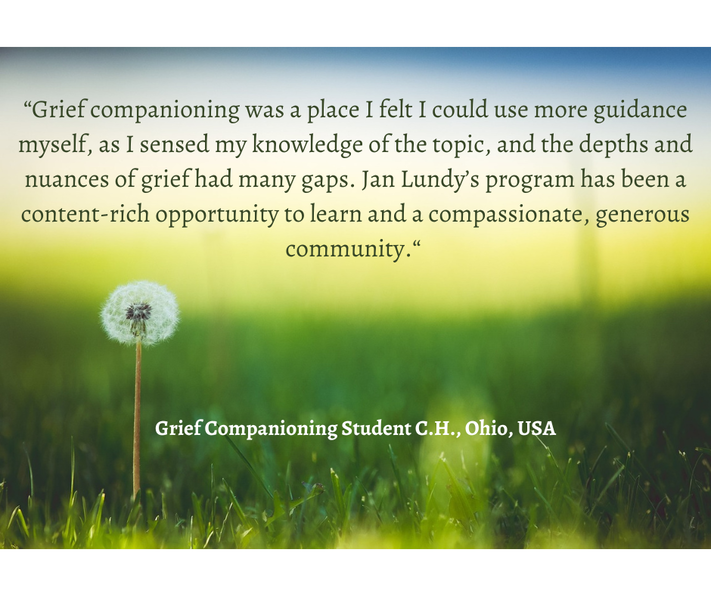Basic Course Content*
Introduction to Grief Companionship:
Why the Grief Companionship model? Its uniqueness and value in today's world
Misconceptions and cultural myths about grief and mourning
Implementing a holistic approach to grief care
The Art of Grief Companioning
How and why spiritual directors/guides and care providers are uniquely positioned to serve as Grief Companions
Contemporary grief theory (including new contributions to the field from neuroscience)
Types of grief and approaches to their care
Deepening skills for holding space through paced, compassionate listening through Pure Presence™
Befriending your own grief as you companion others
Knowing when to refer
Serving the Griever in Meaningful Ways
Helping grievers explore intense feelings of grief
Mourning rituals and practices
Attending to spiritual needs and existential questions
The Transformative Power of Grief
Allowing grief to change us
Transcending grief to uncover deeper meaning and purpose in life
Living the questions: the ultimate nature of living with ongoing loss and grief
©Janice L. Lundy, 2023
*Note: A comprehensive course syllabus will be sent to all registered students.
Why the Grief Companionship model? Its uniqueness and value in today's world
Misconceptions and cultural myths about grief and mourning
Implementing a holistic approach to grief care
The Art of Grief Companioning
How and why spiritual directors/guides and care providers are uniquely positioned to serve as Grief Companions
Contemporary grief theory (including new contributions to the field from neuroscience)
Types of grief and approaches to their care
Deepening skills for holding space through paced, compassionate listening through Pure Presence™
Befriending your own grief as you companion others
Knowing when to refer
Serving the Griever in Meaningful Ways
Helping grievers explore intense feelings of grief
Mourning rituals and practices
Attending to spiritual needs and existential questions
The Transformative Power of Grief
Allowing grief to change us
Transcending grief to uncover deeper meaning and purpose in life
Living the questions: the ultimate nature of living with ongoing loss and grief
©Janice L. Lundy, 2023
*Note: A comprehensive course syllabus will be sent to all registered students.

